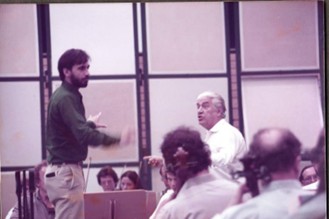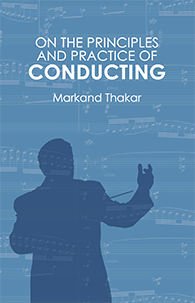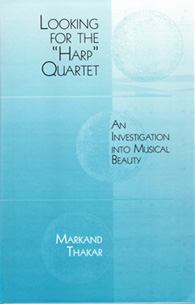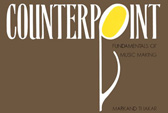Author
ARTICLE

The author with Celibidache at the Dirigierskurs with the Munich Philharmonic, June 1981. He was not known for his kind and gentle pedagogy. A colleague: "Sure, I studied with Celibidache. Wanna see the scars?"
Celibidache Considered
Music & Practice online journal
Nearly 30 years after his death, Sergiu Celibidache has become both legendary and largely misunderstood.
Celibidache described the highest possibility of the musical experience as one of literal transcendence: under certain conditions it is possible for the listener to transcend consciousness of physical time and space, losing the everyday distinction between self and the sounds as external, and becoming in consciousness one with the sounds.
In this article the author – a former student – brings forth with specificity some of those critical conditions, demonstrating ways in which Celibidache's performances stood head and shoulders above the norm. It also includes some examples in which he ignored his own principles to negative effect.
Books
On the Principles and Practice of Conducting
University of Rochester Press, 2016
On the Principles and Practice of Conducting is a practical manual for building musical understanding and physical skills, intended for anyone who stands on a podium with the intention of helping an ensemble make music. The four main chapters address the major obligations of the conductor: 1) bringing the musical tones to life in the most beautiful, most moving way possible; 2) freeing the mind to fully absorb all the tones; 3) freeing the body of unnecessary tension; and 4) effectively using the freed mind and body to influence the sounds.
Each chapter begins with a summary of the underlying principles, presents real-life applications, and offers exercises for developing skills. Video demonstrations of the exercises as well as downloadable scores and parts are available on this website.
Looking for the "Harp" Quartet:
An Investigation into Musical Beauty
University of Rochester Press, 2011
THE BOOK is a philosophical tour through the experience of musical beauty: what it is, and how the composer, performer, and listener all contribute. It explores – with insight, patience, and humor – profound issues at the essence of our experience. A hypothetical student performance of Beethoven’s String Quartet No. 10 in E-Flat Major, known as the “Harp,” serves as a point of departure and a recurring theme for these explorations. For the layperson, the core of the book is the five dialogues between Icarus, an inquiring student intensely concerned with fulfilling his highest potential as a musician, and Daedalus, a curmudeonly, iconoclastic teacher who guides his search. Three technical articles, geared to the music professional and academic, treat the issues in greater depth.
Musical beauty results from experienced sound, consequently the book depends heavily on listening to the musical examples throughout. Audio realizations of the examples are available at www.markandthakar.com/harpquartet. These audio examples only suggest elements of the process; there is no full performance among them that can lead to the experience of ultimate beauty. (These audio realizations were produced by The Fauxharmonic Orchestra, mostly of sampled piano sounds. This is both for clarity, and to lend a sense of reality to the dialogues – often passionate, sometimes heated – that take place around a teaching-studio piano.)
Counterpoint: Fundamentals of Music Making
Yale University Press, 1990
Counterpoint manuals have long been central to the music education of composers, historians, and theorists. In this book a conductor uses counterpoint exercises to aid musicians in becoming sensitive to the fundamental ingredients of good music making. The author takes the reader step by step through the composition and performance of the counterpoint species, from unaccompanied lines to complex three part exercises. Each genre of counterpoint is preceded by a discussion of the musical element it introduces - line (cantus firmus), harmonic interval (two-part counterpoint), dissonance (second to fourth species), and rhythm (fifth species). "Write-throughs", which illustrate the composition of an exercise from start to finish, are included for each species. Throughout, the author focuses on the experience of musical beauty, recognizing that it results from the contribution of both composer and performer. Thus each exercise is successful only when it is composed, and performed, so that it allows this experience. And as each new element of music is introduced, its effect on the experience of beauty is considered. This book should have value for a wide range of readers, from accomplished soloists and composers to near beginners. It aims to advance conscious understanding of the principles of good music making, yet the reader needs to know little more at the outset than the major and minor scales, a few key signatures, and the names of intervals.
MAGAZINE ARTICLES
Markand Thakar wrote an entertaining monthly column
about things musical for Duluth Superior Magazine for several years
ADIO COMMENTARY
Markand Thakar has been a frequent commentator for
National Public Radio’s “Performance Today” program.
Click below to view transcript.





